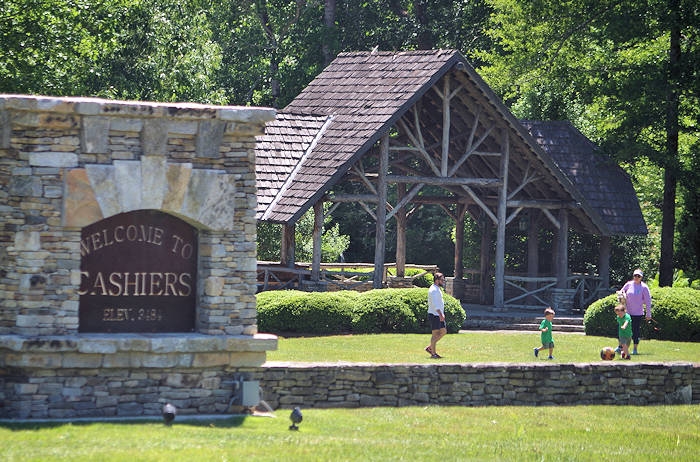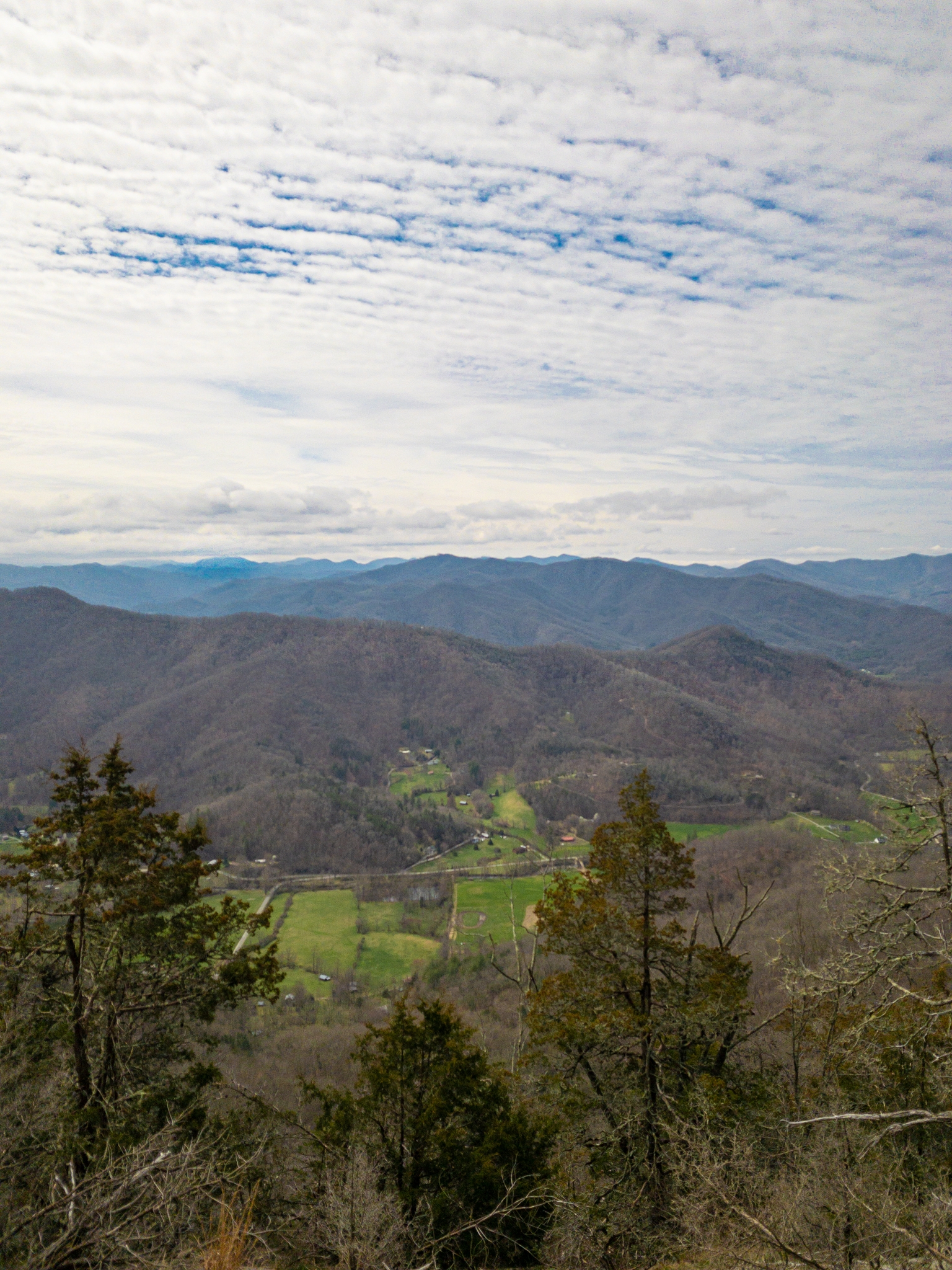I Live in the Rural Town the ATC Asked You Not to Travel To
As tensions rise alongside the number of cases of the coronavirus, people have been fleeing from their homes in the larger cities and funneling into the more rural areas of the country at an alarming rate. According to the government’s 2010 Census data, my hometown of Cashiers, North Carolina, only had 157 full-time residents. This number is slightly low due to inaccuracies in counting and the data being out of date, but current reports state that we are still less than 2,000 in 2020. We rely heavily on the tourist industry during the summer and fall months to sustain our local economy, and the beautiful natural vistas such as Panthertown Valley, Gorges State Park, and Whiteside Mountain attract outdoor enthusiasts of every variety to our small mountain town. During these peak months the population explodes exponentially as country clubs, hotels, vacation cabins, and campgrounds fill with visitors who many of us strive to provide accommodations for.
Doing Harm to Small-Town America
Now some of those same people are returning despite warnings from the WHO, the CDC, and even trail organizations such as the Appalachian Trail Conservancy to avoid traveling during these times. Cases of COVID-19 have appeared both in Jackson County (see photo of press release posted on 3/23), where I live, and in Macon County just a short drive away. These cases share one painful similarity: they were both detected in people who fled to the mountains.
Why You Shouldn’t Run for the Hills
The first thought for many people when they heard the coronavirus was beginning to creep across the nation was that they would be safe in rural areas. Being that I was a hiker who had to give up my hopes of completing the Appalachian Trail this year, I certainly struggled with letting that idea go once the ATC sent thru-hikers an email explaining how our hikes may have negative impacts on the mountain communities we may pass through. The fact of the matter is that smaller towns don’t have the medical infrastructure to handle an outbreak. Were I or my fellow hikers to accidentally carry the virus into any of the Appalachian Trail’s support towns, we may very well endanger those who call those places home. Put simply: This isn’t about us, it is about those we may affect.

Downtown Cashiers’ Village Green. Source
Many people have heard this argument by now, and if not you can get it in full from me here, but its implications far exceed the hiking community. Travelers of every variety place the communities they pass through at risk for infection, and what may be worse is the very communities they risk passing COVID-19 along to would be the same places that would have to deal with treating those carrying the virus. The rural town you took refuge in would be the same people tasked with treating your symptoms or transporting victims to areas better equipped to fight the virus, i.e. places that already have the virus. Transport or treatment would mean more people coming into contact with the virus, and in turn mean more cases of the virus infecting the local population.
What Should We Do?
I am not a doctor. I do not study infectious diseases nor have I been tasked with treating those who have been infected by them. I am a hiker, a writer, and a humanitarian, so please do your own research on what you believe you should do. With that being said, I believe the current measures of practicing personal hygiene, physically distancing ourselves from one another, and remaining home as often as possible seem like perfectly reasonable strategies. One of my fellow hikers has family in the medical field, and they have been pleased with this article and urged me to read it. This piece has a lot of numbers, and so I have decided to list some other, more easily digestible suggestions from various respected organizations below.
As for what I feel inclined to ask of all of you—please, please do not place rural America at an even greater risk. Many places like the one I call home do not have the means to fight off an outbreak. We would certainly need to call upon those already fighting this war with COVID-19 to assist us should the number of cases rise locally. The larger hospitals are already being bogged down with testing and treatment, and the hope that they would be able to provide the additional support needed to stave this off seems unlikely. I will be staying home until opportunities for me to be of use to the public arise, and it is my belief that this is the best course of action.
Coronavirus Safety
The Center for Disease Control (CDC)
This website contains affiliate links, which means The Trek may receive a percentage of any product or service you purchase using the links in the articles or advertisements. The buyer pays the same price as they would otherwise, and your purchase helps to support The Trek's ongoing goal to serve you quality backpacking advice and information. Thanks for your support!
To learn more, please visit the About This Site page.




Comments 8
Thanks for your post Jacob. I’m encouraged to hear your voice raised in defense of others when people need to hear the message you have to offer.
Thanks for your post. We mostly think of ourselves. Your angle, about your community and the impact of the corona virus would have is insightful. Have a good day!
Very well said and needed to be said. Your points are excellent, as is your writing style. Thank you for this post.
I agree totally, Jacob. The local counties should do what Ocean City, MD has done. No one can come in to the area unless they can prove they are a property owner and full time resident. The Jackson County case was a “part time resident”, so I heard on the radio. The grocery store parking lot Monday was filled with out-of-state license plates and shoppers were piling their carts high. It makes me very nervous to go to the store because we are seniors with health issues. Like you, I know the community is not prepared for an outbreak. We don’t even have a full time doctor in Cashiers at the moment. It is very worrying. Take care.
I agree. I live in Hiawassee am a hiker and Trail Angel. I too cancelled my plans to do the AT. Unfortunately, those who are still out there despite everyone’s advice are seen by the locals around here as feeling entitled and selfish. This might poison the locals attitude toward hikers for years. Here in Hiawassee, the County government has called on the US Forestry Commission to close the AT and all trails here.
It is unfortunate that some people just don’t want to do their part. Recent examples include the people down in Florida during Spring Break. Your article does a great job of highlighting the concerns to small towns and rural areas. I see this in other communities as well like the sailing community where just a couple of “entitled” people don’t feel the policies apply to them and ruin it for others, especially in the future. Perhaps more drastic action is needed like actually closing down trials. All parks and playgrounds are now closed in my town but people are still disregarding the policy.
So if one leaves the trail, after hiking say 400miles and having started at Springer, to keep the ‘small towns’ safe, what about the others? If a hiker gets off the trail he/she gets a shuttle, stays in a hostel or hotel for a night, then a UBER or rents a car or some other form of transportation to the airport for home, then fly to the home airport and gets a ride home….he/she comes in contact with hundreds or even thousands of people. Do those people count as much as the ‘small town’ folks?
Seems some are selfish for asking hikers to stop or postpone their trips because of the ‘small town’ folks. Aren’t ALL people important? How silly to think a hiker that has been on the trail for at least 14-20 (or more) days should stop their hike. THEY’VE BEEN IN THE WOODS! Very minimal human contact. Wouldn’t the wise thing be to suggest social distancing on the trail?
To me, this whole thing seems like an overreaction, and the idea of how to prevent this virus for hikers is not thought out very well. Panic and hysteria should not be the guiding force.
It’s not so much that they would have to go home, but to instead follow the distancing guidelines necessary to slow the spread. Should a hiker contract the virus for any reason, they would leave it behind at the shelters they sleep in, the privies they use, the picnic tables and benches they take breaks at, and possibly, in my case certainly, spread it into fragile communities. Hiking the AT in its entirety isn’t a cheap expedition, and so hikers at large have the ability to shelter in a hostel or campground or the like should they be too far from home to return easily. Those still on trail are able to enjoy that luxury because so many have left, so many got off and left it far emptier than it would otherwise be. If we hadn’t made the decision to give up our thru-hikes, the bubble would be significantly larger and significantly more dangerous for both hikers and town folk alike.
To the point of placing rural lives over anyone else’s, that’s far from the truth. We simply want to protect our own just like everyone else, and that’s harder to do when people travel carelessly and place us in harm’s way, especially with many of us being without immediate access to the proper medical care necessary to battle an outbreak. Limiting spread in every capacity is important.